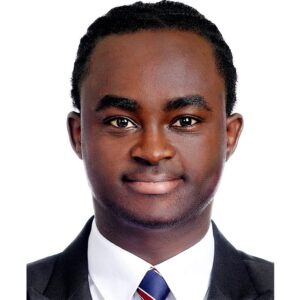
Milandu Keith MOUSSAVOU BOUSSOUGOU has been actively involved in the Gabonese community in Korea, serving as Treasurer and Finance Manager (2020-2021), General Secretary (2021-2022), and interim President in 2023. His leadership roles in Samba-Corée have allowed him to foster a strong sense of community and support fellow Gabonese in Korea through unity and solidarity. His engagement in the Gabonese community and academic performances earned him the Prize of Excellency from the Gabonese ambassador and the Prize of Leadership from Professor Brice Obiang, both awards within Samba-Corée.
Keith’s journey to Korea began in 2017 when he received the prestigious Global Korea Scholarship (GKS), leading him to undergo rigorous Korean language training at Pai Chai University in Daejeon. He then pursued a master’s degree in computer science at Soongsil University, where he conducted significant research on detecting voice phishing attacks using AI. His academic excellence continued as he advanced to a Ph.D. program at Soongsil University, focusing on AI and natural language processing (NLP) while contributing to the Gabonese community.
In addition to his work for Huawei Technologies in Gabon as a site engineer, Keith has accumulated valuable professional experience in Korea. He has worked as a data scientist and full-stack web developer, notably at WeCrest. His roles involved data analysis, web application development, and AI-driven projects, including developing innovative data crawling programs that earned him a patent.
Keith’s journey from Gabon to South Korea reflects his commitment to excellence, the continuous promotion of Gabon in Korea, and his drive to impact the African community in Korea positively. He is pursuing his doctorate while actively contributing to the Gabonese community and advancing the field of AI.
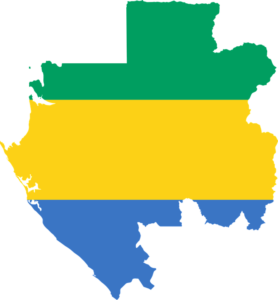
8th president

Ted Martinez MAPOTA MIKOUMA NDONG has been residing in South Korea since 2015, where he is currently completing his final year of undergraduate studies in the Department of Economics at Hankuk University of Foreign Studies (HUFS). His academic journey has been characterized by a strong focus on international relations, economics, and public policy, which has equipped him with a global perspective on economic issues and governance.
In 2019, Ted began his involvement with our association as the Responsible for Sport, Culture, and Leisure, where he demonstrated remarkable leadership skills and a keen understanding of cultural initiatives. His dedication and vision led him to serve as interim Secretary General in 2020, before being voted President of Samba-Corée, a role he held for two consecutive years. During his tenure, Ted worked tirelessly to expand the organization’s influence, engage new partners, and organize cultural events that promoted cross-cultural understanding between South Korea and Gabon.
In addition to his leadership in Samba-Corée, Ted served as a Cultural Affairs Consultant at the Gabonese Embassy in the Republic of Korea, where he was responsible for advising on cultural diplomacy and organizing events that strengthened ties between both nations. His work in this capacity allowed him to further refine his skills in international relations, communication, and diplomatic engagement.
Ted also completed a Master’s program in Public Management at the Korean Development Institute (KDI) School in 2024, specializing in Global Governance and International Political Economy. His academic focus on these areas reflects his commitment to understanding the complexities of global economic and political systems and his desire to contribute to sustainable and inclusive growth.
A passionate advocate for innovation, progress, and cross-cultural collaboration, Ted is deeply committed to leveraging his diverse experiences and expertise to support the values and goals of our organization. He is proud to be a member of this distinguished group and looks forward to contributing to its continued success.
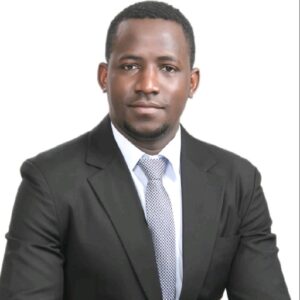
Ibala Stephane is a Master’s student at Chungbuk National University. In 2014, he graduated from Omar Bongo Technical High School and got a Korean government scholarship for undergraduate studies in 2016.
After a year at Kyung-hee University in Seoul, where he studied Korean language, he started studying civil engineering at Chungbuk National University as a bachelor student in 2017. And in February 2021 he graduated and started his master’s degree in steel structure engineering.
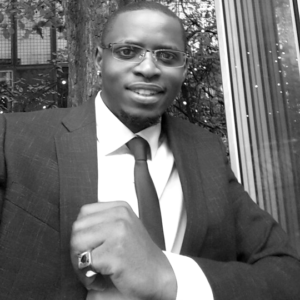
Doctor Grescent Ayl DIBANGOYE DHYBASS, arrived in South Korea in 2014 through the KGSP program for a PhD in Information Systems Management at the University of Ulsan. Ayl Dhybass is also an entrepreneur in digital marketing and import ~ export.
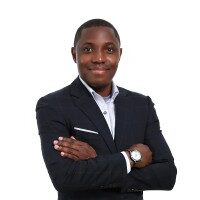
Larry Chris EBENE ASSOUMOU came to Korea in 2009 via the Korean government scholarship (KGSP). He studied electrical engineering during his undergraduate course and graduated in 2014 from Sun Moon University. Later, he will also attend KYUNG GHEE University where he concluded with success his MBA.
He has been working in Korea for more than 5years, he firstly started as engineer and project assistant manager in UKB specialized in lead acid battery manufacturing after 4 years and the field of backup energy, Solar energy. He never stopped looking for more challenges. He is currently working in the field of EV chargers, at JoongAng Control a firm of the ministry of environment in Korea.
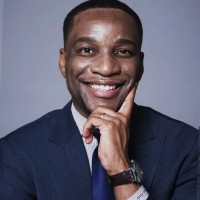
Mr. Boris Ondo is the third president of SAMBA-CORÉE. He served the association for two consecutive terms. He currently works at the Embassy of Gabon in Seoul, Korea, as a Trade & Investments Attaché. Prior to joining the Embassy of Gabon, he was an intern at the Korean National Assembly (MP Jasmine Lee’s office).
Mr Ondo is the founder of the Africa Youth Action Forum Foundation (AYAF). He is also the founder of the Global Student Association (GSA) of Hankuk University of Foreign Studies, an organization that he also led during his undergraduate studies. He has more than 10 years of experience in community and project development. Furthermore, he is a certified public speaker with extensive experience in leadership actions. He holds a Bachelor’s Degree in Political Science and Diplomacy and English Linguistics from Hankuk University of Foreign Studies (Seoul, Korea) in 2016. He completed a Master’s Program in Public Management in 2019 at the Korean Development Institute, School of Public Policy and Management (KDI School), specializing in Global Governance and International Political Economy.
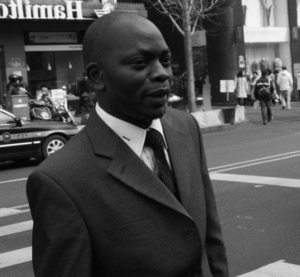
Serge Thomas MICKALA BOUROBOU is a computer scientist who graduate from Pusan National University in 2014. He came to Korea through the Korean Government Scholarship Program (KGSP). During his master Serge worked on several topics such as IoT and artificial neural networks
He published a research paper in 2015 about user activity recognition in smart home using pattern clustering applied to artificial intelligent network.
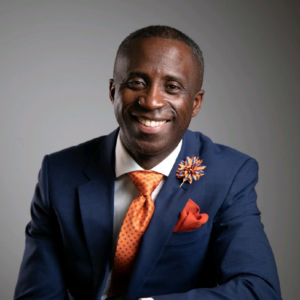
Doctor Brice Wilfried OBIANG-OBOUNOU is a population health researcher. For the past 7 years, he has mostly worked on acculturation and the risks of cardiovascular disease among minority populations in South Korea, where he was a public health nutrition professor. He developed expertise in acculturation (dietary acculturation) and health of minorities, social determinants of health, and health inequalities.
Academically, he completed his Bachelor of Science in Biochemistry from Université de Moncton (Canada), a PhD in Oriental Pharmacy from Wonkwang University (South Korea), and a Certificate in Applied Biostatistics from Harvard University (USA). His long-term goal was to work with the indigenous population in Canada and the USA. This came after he gave a lecture on food and cultures of the First Nations of Americas. Beyond the culture, the health disparity is one that got most of his attention. It is therefore with great humility that he hopes that his work can contribute to reducing health inequities such as chronic illness, food insecurities, and mental health crises among minorities. Brice believes that research done to improve the overall wellbeing of Indigenous people or any other minority groups should integrate their own perspectives and world views.